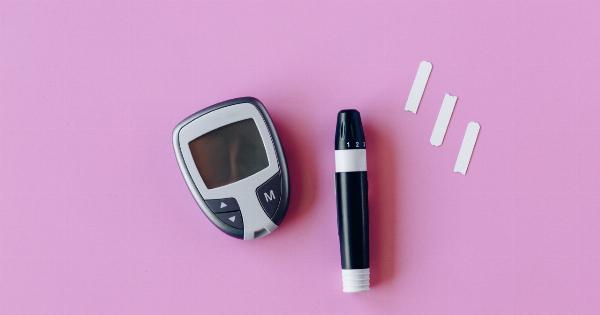Type 2 diabetes is a chronic condition that affects millions of people worldwide. It occurs when your body becomes resistant to insulin or doesn’t produce enough insulin to maintain normal blood sugar levels.
However, the good news is that you can reverse type 2 diabetes naturally by making some significant changes to your lifestyle. In this article, we will explore various strategies and techniques that can help you manage and potentially reverse type 2 diabetes in a natural and sustainable way.
Understanding Type 2 Diabetes
Before discussing how to reverse type 2 diabetes, it is crucial to understand the condition and its underlying causes. Type 2 diabetes is often linked to factors such as genetics, obesity, sedentary lifestyle, and poor dietary habits.
While genetics play a role, lifestyle choices can significantly impact the development and progression of this condition.
1. Adopt a Healthy Diet
A well-balanced and nutritious diet is a cornerstone of managing type 2 diabetes. Focus on consuming whole, unprocessed foods that are low in sugar and high in fiber. Include plenty of fruits, vegetables, lean proteins, and whole grains in your meals.
Minimize the intake of processed and sugary foods, as they can lead to blood sugar spikes and worsen insulin resistance.
2. Stay Active
Regular exercise is beneficial for managing and reversing type 2 diabetes. Engaging in physical activity helps improve insulin sensitivity, allowing your cells to use glucose effectively.
Aim for at least 150 minutes of moderate-intensity aerobic exercise per week. Incorporate activities like brisk walking, cycling, swimming, or dancing into your routine.
3. Maintain a Healthy Weight
Obesity and excess body weight are major risk factors for type 2 diabetes. Losing weight, especially abdominal fat, can significantly improve insulin sensitivity and glycemic control.
Focus on gradual weight loss through a combination of healthy eating and regular exercise. Consult a healthcare professional to determine a suitable weight loss plan for your specific needs.
4. Manage Stress Levels
Chronic stress can contribute to the development and progression of type 2 diabetes. High levels of stress hormones, such as cortisol, can impact blood sugar levels and insulin sensitivity.
Incorporate stress-reduction techniques into your daily routine, such as meditation, deep breathing exercises, yoga, or engaging in hobbies that bring you joy.
5. Get Quality Sleep
Poor sleep quality and insufficient sleep duration have been linked to an increased risk of developing type 2 diabetes.
Create a soothing sleep environment, establish a consistent bedtime routine, and aim for seven to nine hours of quality sleep each night. If you have difficulties sleeping, consult a healthcare professional who can provide guidance and recommend appropriate interventions.
6. Reduce Alcohol Consumption
Excessive alcohol intake can disrupt blood sugar levels and contribute to insulin resistance. If you have type 2 diabetes, it is essential to moderate your alcohol consumption.
Women should limit themselves to one drink per day, while men can have up to two drinks per day. Always drink responsibly and consult with your healthcare provider if you have any concerns or questions.
7. Implement Intermittent Fasting
Intermittent fasting has gained popularity for its potential health benefits, including improved insulin sensitivity and glycemic control. This eating pattern involves cycling between periods of fasting and eating.
There are different fasting methods to choose from, so consult with a healthcare professional to determine the best approach for your individual circumstances.
8. Stay Hydrated
Proper hydration is crucial for overall health and blood sugar management. Drink an adequate amount of water throughout the day and limit sugary drinks, including soda and fruit juices.
Water helps regulate blood sugar levels, supports kidney function, and aids digestion.
9. Monitor Your Blood Sugar
Regularly monitoring your blood sugar levels is essential for effectively managing type 2 diabetes. Understand the target range set by your healthcare provider and consistently check your levels using a glucose monitoring device.
This will help you track the impact of lifestyle changes and ensure that your treatment plan remains effective.
10. Work with a Healthcare Team
While natural strategies can be highly effective in managing and reversing type 2 diabetes, it is crucial to work closely with a healthcare team.
Consult with a registered dietitian, endocrinologist, or certified diabetes educator who can provide personalized guidance, monitor your progress, and make necessary adjustments to your treatment plan.
Conclusion
Reversing type 2 diabetes naturally is possible with diligence and commitment to adopting a healthier lifestyle.
By implementing the strategies discussed in this article, including a healthy diet, regular exercise, stress management, and adequate sleep, you can improve your blood sugar levels, insulin sensitivity, and overall quality of life. Remember to work in collaboration with your healthcare team to monitor your progress and make necessary adjustments along the way.




















